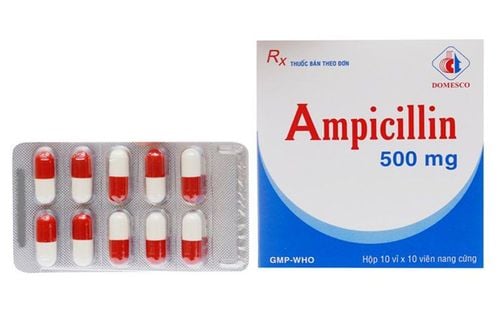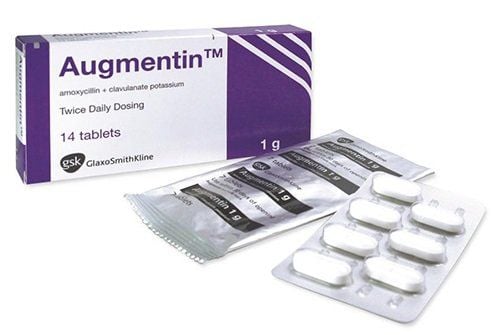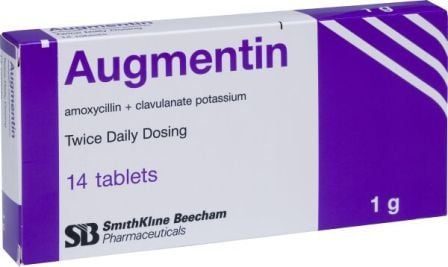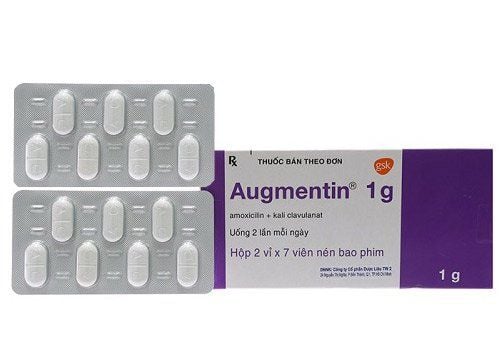Article professionally consulted by Pharmacist Cao Thanh Tu, Department of Pharmacy - Vinmec Times City International General Hospital.
The dosage of Augmentin for children is determined based on age, weight, kidney function, and the severity of the infection. However, for children over 12 years old or weighing 40kg or more, the doctor may consider using the adult dosage.
1. Indications of Augmentin
Augmentin consists of two components: Amoxicillin and clavulanic acid. Amoxicillin is an antibiotic in the penicillin group that kills certain types of bacteria. However, many bacteria can produce an enzyme that reduces the effectiveness of amoxicillin. Therefore, the second component, clavulanic acid, is added to prevent this enzyme from working, allowing amoxicillin to remain effective.
As an antibiotic, Augmentin is only effective in treating bacterial infections. It does not work against viral infections (e.g., colds or flu). Since Augmentin is only effective against certain types of bacteria, it may be effective in one infection but not in others.
Moreover, bacteria always try to adapt to the effects of antibiotics, making many previously effective antibiotics now ineffective (antibiotic resistance). Therefore, the decision to use antibiotics and which type to use requires appropriate examination and evaluation by a doctor. Some parents may self-administer Augmentin (or other antibiotics) to their children based on old prescriptions or prescriptions of other patients with similar symptoms, which is not appropriate.
2. Dosage of Augmentin for Children
The dosage of Augmentin for children is calculated based on age, weight, kidney function, and the severity of the infection.
The manufacturer's recommendations for the oral dosage of Augmentin for children are as follows:
For children under 12 years old or weighing no more than 40 kg: 40 mg/5 mg/kg body weight/day up to 80 mg/10 mg/kg body weight/day, depending on the severity of the infection (not exceeding 3000 mg/375 mg per day), divided into 3 doses.
For children over 12 years old or weighing more than 40 kg: the adult dosage may be used. However, depending on the specific case, the doctor may use a different dosage than the above recommendations.
In any case, parents should follow the doctor's treatment instructions. If there are any concerns about the dosage, parents should directly consult the doctor for detailed explanations and avoid self-adjusting the dosage, which can lead to treatment failure or increased side effects of the drug.
3. Should Augmentin be taken before or after meals?
Some children may experience digestive disturbances after taking Augmentin, including nausea and diarrhea. The absorption of Augmentin is optimal when taken at the beginning of a meal. Additionally, some children may experience digestive disturbances after taking Augmentin, including nausea and diarrhea, especially when taking high doses.
Therefore, to minimize digestive disturbances and create conditions for the best absorption of the drug, parents should give the child the medication at the beginning of a meal or with a light meal.
If the child shows signs of severe digestive reactions or symptoms of an allergic reaction (such as itching, rash, swelling of the face, mouth, difficulty breathing), parents should take the child to see a doctor for timely diagnosis and treatment.
To arrange an appointment, please call HOTLINE or make your reservation directly HERE. You may also download the MyVinmec app to schedule appointments faster and manage your reservations more conveniently.














